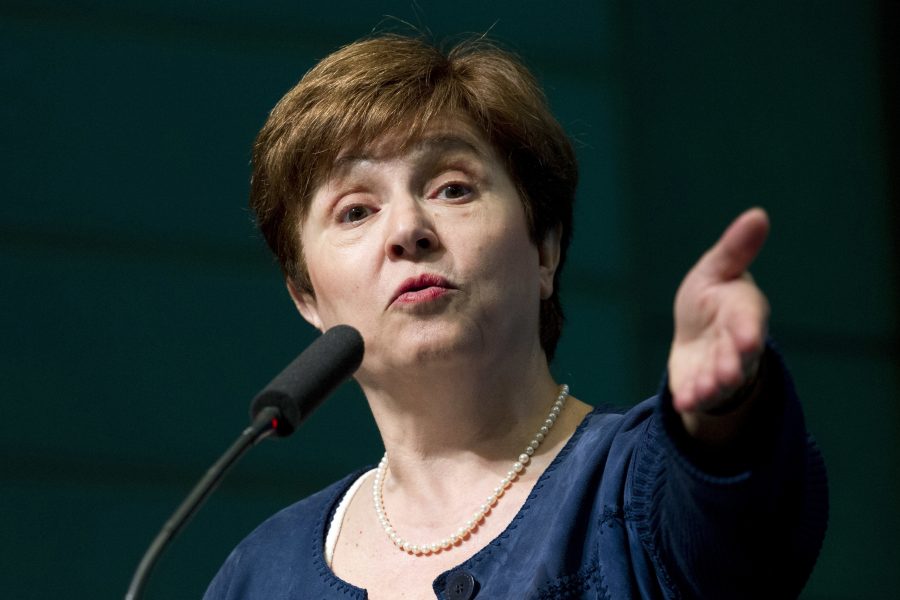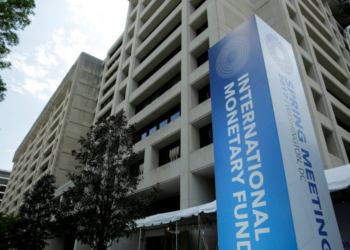The International Monetary Fund (IMF) has announced that the Nigerian economy would witness a deeper contraction of 5.4% and not the 3.4% it projected in April 2020. But the global lender expects Nigeria’s economy to rebound by 2.6% in 2021.
IMF says the forecast is influenced by the larger than expected storms to global value chains due to the coronavirus, affecting global demand for goods and services.
The IMF expects poorer nations dealing with the disease to have longer economic recoveries as lockdowns continue in the worst-hit to global GDP since the Great Depression.
Gita Gopinath, IMF Chief Economist said: “our projection for sub-Saharan Africa overall is a negative 3.2 % in 2020 with a recovery in 2021 of 3.4%.”
READ MORE: IMF list unpopular policies CBN must reverse
South Africa’s economy is expected to decline by 8% in 2020 and a 3.5% rebound forecasted for 2021.
IMF says the higher than expected GDP decline is a sign that poorer economies are being hit harder because, “for many countries that are staring out at lower per capita income levels when you have a growth hit of 3 percentage points, the distress that it causes in peoples lives is in a bigger magnitude than a similar decline for an advanced economy so these are very difficult times.”
“With the relentless spread of the pandemic, prospects of long-lasting negative consequences for livelihoods, job security and inequality have grown more daunting,” IMF said in its revised World Economic Outlook.
The rebound of equity markets globally “appears disconnected from shifts in underlying economic prospects”. The fund expects reduced consumption due to larger than expected disruptions to domestic appetite for goods and services due to social distancing measures for COVID-19.
Chief Economist, Gita Gopinath said last month that the global outlooks are worse than previously expected and the fund may downgrade its April forecasts based on data its computing.
Fiscal Monetary Policies seem to have eased in first world nations and emerging economies.
Globally, Central Banks have announced stimulus plans up to $11 trillion, which is $3 trillion higher than April estimates. These plans are expected to soften the effects on the declining economic activity and limited the rising borrowing costs, also emerging markets portfolios have seen a recovery from earlier withdrawals.
The fund says the reduced global GDP could “tip some economies into debt crises and slow activity further”.
The US GDP is set to take an 8% hit in 2020, compared to 5.9% earlier predicted, 2021 growth forecast is pegged at 4.5%. The Euro Area is expected to shrink by 10.2% in 2020 and grow 6% in 2021.
Emerging Markets are expected to shrink by 3% while advanced economies by 8%, compared to 6.1% previously predicted.
China will see a little growth as it’s expected to grow by just 1%. Brazil is expected to shrink 9.1%, Mexico by 10.5% and India by 4.5%.
IMF warns that the reductions in GDP due to COVID-19 will widen inequality, with over 90% of emerging market economies expected to have per capita income declines.
Global trade for goods and services will also shrink by 11.9% this year.
Explore the advanced financial calculators on Nairametrics
The group expects 2 possible scenarios, first a possible second virus outbreak next year which will disrupt economic activity to about half the value expected for this year, emerging economies are expected to feel the heat more and global outlook will be 4.9% lower than 2021 forecasts.
The other scenario predicts a faster than expected economic rebound with global forecasts 3% higher than 2021 expectations.




















